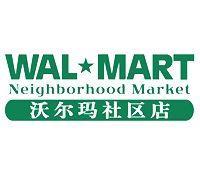
Walmart Stores has withdrawn a number of products from its shelves in China in response to accusations it was selling substandard food in the country, according to local and international media reports.
In January, one of Walmart China’s stores in Dazhou, a city of nearly 7m people outside Chongqing, was reportedly asked by the city’s Animal Husbandary and Foodstuff Bureau to stop selling pork ribs sourced from diseased pigs, according to the Financial Times (FT).
An official from the bureau said the news was only made public this week after the central government had requested it to provide the media with “classic case studies” as part of China’s National Food Safety Week, the FT reported.
In a statement on Wednesday, Walmart announced that it had already addressed the incident in Dazhou. “The `pork` product was immediately removed from our shelves in that store and we have discontinued our supply of that product,” the retailer said. “Since January, we continue to be in close contact with the Dazhou government on such matters and are committed to providing our customers with quality products at highly affordable prices.”
On Thursday, meanwhile, Beijing’s Food Safety Administration said that it accused Walmart of breaching food safety standards in March when it found one of its branches in the capital retailing sesame oil with carcinogenic ingredients and fresh squid containing hazardous levels of cadmium.
Walmart has yet to release a statement regarding the product recalls in Beijing, but local state media reports said the retailer had removed all these products from its shelves, according to the FT.
That the accusations have emerged during China’s food safety week is perhaps no surprise. Industry observers said that the country’s authorities tend to crack down on foreign companies during this annual national campaign in order to demonstrate how serious they are about addressing food safety issues. Food safety has become a huge issue for Chinese consumers in the wake of cases such as the 2008 tainted milk scandal.
The negative publicity is likely to encumber Walmart’s efforts to recover from the pork-labelling scandal that jolted its China operations last year. Last October, Walmart stores in Chonqging were accused by local authorities of selling conventional pork labelled as premium-priced organic product. As a result, the 13 stores were temporarily shut down, two store managers were arrested and many other staff were detained as a police investigation was launched.
That incident led to the overhaul of Walmart’s store management in China and the implementation of a new food safety compliance system across its network of national stores.
Walmart China’s CEO and president at the time, Ed Chan, resigned in the wake of the incident, citing “personal reasons”. A number of other senior executives have left since then.
Ex-head of Woolworths Supermarkets Greg Foran took over as CEO of Walmart China from 1 March, and he is understood to be overseeing a change in strategy for the retailer, which has around 370 stores in the country.
Although Walmart China’s acquisition of a 35 per cent stake in Taiwanese-owned chain Trust-Mart in 2007 ramped up its store numbers, the expansion and cumbersome takeover have reportedly weighed heavily on its profitability.



